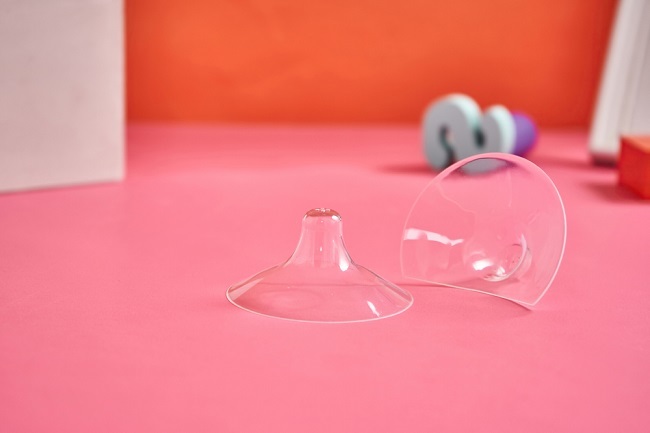Magnesium citrate is a drug used to treat constipation or constipation. In addition, this drug can also be used as a mineral supplement to treat magnesium deficiency.
Magnesium citrate works by retaining and increasing the water content in the stool. This way of working will make the consistency of the stool softer and stimulate bowel movements. That way, the feces will be easier to pass.

After consumption, the effect of the drug in stimulating bowel movements will generally appear within 30 minutes to 6 hours.
Trademarks of magnesium citrate: -
What is Magnesium Citrate
| group | Free medicine |
| Category | Supplements and laxatives |
| Benefit | As a mineral supplement and to treat constipation |
| Consumed by | Adults and children |
| Magnesium citrate for pregnant and lactating women | Category C:Animal studies have shown adverse effects on the fetus, but there are no controlled studies in pregnant women. The drug should only be used if the expected benefit outweighs the risk to the fetus. Magnesium citrate can be absorbed into breast milk. If you are breastfeeding, do not use this medicine without consulting your doctor first. |
| Drug form | Tablets, capsules, syrup |
Precautions Before Taking Magnesium Citrate
Although it belongs to the class of over-the-counter drugs, there are several things you should pay attention to before taking magnesium citrate, including:
- Do not take magnesium citrate if you are allergic to this drug.
- Talk to your doctor about using magnesium citrate if you have or are experiencing hemorrhoids, intestinal obstruction, ulcerative colitis, heart disease, or kidney disease.
- Talk to your doctor about using magnesium citrate if you have severe stomach pain or persistent nausea and vomiting.
- Talk to your doctor about using magnesium citrate if you are pregnant, breastfeeding, or planning a pregnancy.
- Consult your doctor if you plan to take magnesium citrate with certain medications, supplements or herbal products,
- Call your doctor right away if you experience an allergic drug reaction, overdose, or serious side effects after using magnesium citrate.
Dosage and Instructions for Use of Magnesium Citrate
The following are general doses of magnesium citrate based on the intended use, gender, and age of the patient:
Purpose: Nutritional Supplements
- Adults ages 19–30: For men, the dose is 400 mg per day. For women, the dose is 310–350 mg per day.
- Adults over 30 years old: For men, the dose is 420 mg per day. For women, the dose is 320–360 mg per day.
Purpose: Overcoming constipation
- Mature: 195–300 ml per day, can be taken once a day or divided into several meals. An alternative dose is 2–4 tablets at bedtime.
- Children ages 2–6 years: 60–90 ml per day, once daily or divided into several doses. The maximum dose is 90 ml per day.
- Children ages 6–12 years: 90–210 ml per day, once daily or divided into several doses.
How to Use Magnesium Citrate Correctly
Always follow your doctor's advice and read the instructions on the medicine package before taking magnesium citrate.
Take magnesium citrate on an empty stomach, for example 1 hour before eating or 2 hours after eating. Swallow magnesium citrate tablets or capsules with the help of a full glass of water.
Use the measuring spoon provided on the medicine package to determine the dose of magnesium citrate syrup. Do not use other measuring tools, such as tablespoons, because the dosage can be different. Drink a full glass of water after taking magnesium citrate syrup.
Magnesium citrate will work after 30 minutes to 6 hours after the drug is consumed. Consult a doctor if constipation does not resolve after 7 days of taking magnesium citrate, because this drug should not be used for more than 7 days.
In addition to consuming magnesium citrate, you are advised to eat foods high in fiber, such as green vegetables or fruits, to prevent constipation. You also need to drink about 6-8 glasses of water a day. In addition, exercising regularly can also prevent constipation.
Store magnesium citrate at room temperature, in a dry place, and away from direct sunlight. Keep magnesium citrate out of reach of children.
IInteraction of Magnesium Citrate with Other Drugs
There are several interactions that can occur if magnesium citrate is used with other drugs, namely:
- Increased levels of phosphate in the blood when used with erdafitinib
- Decreased effectiveness of dolutegravir, baloxavir marboxil, or potassium phosphate
- Decreased blood levels of tetracycline, oxytetracycline, minocycline, eltrombopag, doxycycline, or demeclocycline
Side Effects and Dangers of Magnesium Citrate
Some of the side effects that can appear after using magnesium citrate are more frequent, looser stools, stomach cramps or pain, dizziness, excessive sweating, or electrolyte disturbances. Consult a doctor if these side effects do not improve or get worse.
See your doctor right away if you have an allergic reaction to the drug or a more serious side effect, such as severe stomach pain, inability to have a bowel movement, or bloody stools after taking magnesium citrate.









